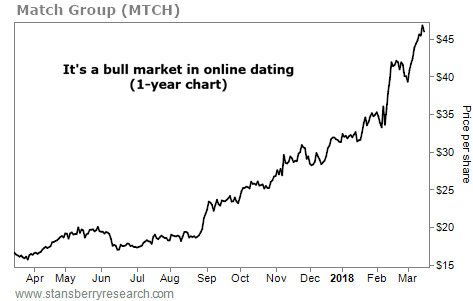The portfolio held 70 stock positions... and I had no clue about most of them.
I had inherited $125 million in shares from a previous portfolio manager, and I hadn't yet gotten up to speed on the investments.
I thought I was "holding" these positions. However, by taking over the reins, I was effectively "buying" them all over again... And that was true for every moment that they were in the portfolio.
It was one of the most important investment lessons I ever learned. Today, I'll explain how it can help you...
Around 12 years ago, I became the manager of a $125 million hedge fund.
The fund had been around for three years. The previous manager had put together a diverse portfolio of stocks, bonds, currencies, and options across a dozen different markets and twice as many countries.
Each position – that is, every asset that the fund owned – had a history... a narrative, and a reason that it was there. It might have been because a stock was cheap, or the company's management was fantastic, or a big dividend was coming up, or that it was an unloved and beaten-up stock that was coming back into favor.
On my first day on the job, my boss told me, "I'd like you to look at every position in the portfolio. Learn the story, assess the valuation, and understand why it's in the portfolio. And then ask yourself if you would buy it today, right now. Because by having it in the portfolio, that's what you're doing."
At first, I didn't understand what he meant. A stock in the portfolio was a holding... So the portfolio was, well, holding it. It had already been bought at some point in the past. I told myself I wasn't the person responsible for the stock "being bought" now — someone else already had.
But he was right. Every position was taking up capital — actual cash — within the fund. If that cash wasn't being used for that position, it could be available to buy a different security.
Every holding came with an opportunity cost. And by holding a position, I was really "buying" that position — each and every day that it stayed in my portfolio.
This also makes sense outside of a stock portfolio.
Think of what you own – all your assets – and ask yourself: "If I had the cash value of this item in my hand, instead of the thing itself (whether it's a stock, a bond, a house, or a car), would I still buy it right now?"
Sometimes you don't have a choice. You need a place to live, so dreaming of what you'd do with the cash you'd receive from selling your house right now might be irrelevant. Your old car might not be worth much anymore, so you can't compare its current value with what you bought it for when it was new.
But you may own other assets that, if you could do it again, you wouldn't buy. You might be able to get something that suits your needs better. In the case of stocks or bonds, you might be able to put the money toward a different stock that has a better return potential or that pays a bigger dividend.
If you're holding on to a loser – whether it's a stock that's down, or an item that you don't need anymore – you're tying up valuable capital that you could put to better use. And each day you continue to own that asset – whether it's a boat or stock or wheelbarrow or ring – you're tying up money to own it... money that could be used for something else.
That's why every day, you are "buying" whatever you already own.
I learned the stories of the 70 securities in the portfolio. I ended up selling about half of them... And by doing so, I freed up the capital to buy other assets that I felt good about "buying" every day.
Good investing,
Kim Iskyan
Editor's note: Despite what hundreds of "experts" say, you only need five simple techniques to get started in another one of the best investments available – real estate. Kim's colleagues at Stansberry Churchouse Research have used these little-known strategies to amass an absolute fortune... turning one $10,000 investment into $12.8 million. Learn more about these five tips – and why you should invest in real estate – right here.
Having patience to invest only when the odds are stacked in your favor is a key to successful investing. Dave Eifrig believes "anaconda trading" is a great way to do just that...
Market Notes
THE UNDISPUTED LEADER IN ONLINE DATING
Today, we're looking at a booming part of the digital revolution...
Regular readers know we're always on the hunt for big, secular trends to invest in. And nowhere is that more prevalent than the rising trend in smartphone usage. These days, people use their phones to do everything from paying bills to ordering food.
We're also seeing people turn to their phones to find a partner. Today, one in three relationships starts online. And when it comes to online dating, Match Group (MTCH) is the undisputed king. The company boasts roughly 60 million average monthly users in 190 countries, and owns many of the most popular dating services, like Match.com, PlentyOfFish, OkCupid, and Tinder.
As you can see in the chart below, MTCH shares keep climbing to new all-time highs. The stock has soared about 180% in the past year... and almost 50% this year alone. Putting your money behind large trends like this is a great way to grow your wealth...



